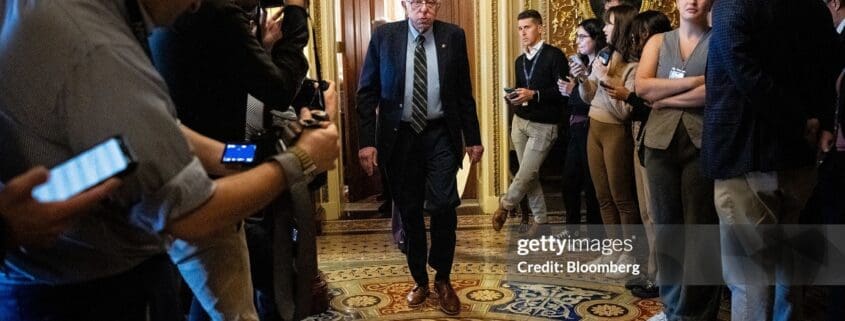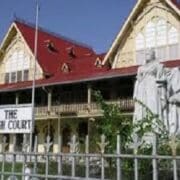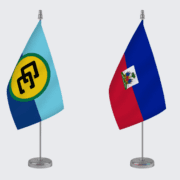Senator Bernie Sanders’ AI Warning: Shaping a Human Future For The Caribbean
By Dr. Isaac Newton
News Americas, NEW YORK, NY, MON. Oct. 13, 2025: What does it mean to be human when machines can think, work, and create faster than we ever could? Senator Bernie Sanders has raised the alarm, warning that up to 100 million jobs in the United States could disappear in the next decade because of artificial intelligence and robotics. His warning is not just for the United States. It applies to the Caribbean as well, asking us a critical question: How can we use new technology without losing the value of human work, dignity, and the spirit that holds our communities together?
The Caribbean stands on the edge of profound change. AI and robotics can reimagine farming with smart systems, transform tourism with personalized experiences, and modernize manufacturing through automation. But progress without careful thought can harm as much as it helps. Picture a farmer watching machines harvest land once tilled by his family or a call center worker in Kingston replaced by an algorithm. Technology can create wealth, but it can also leave people behind if we are not deliberate about how we use it.
Senator Bernie Sanders, an Independent from Vermont, during a vote at the US Capitol in Washington, DC, US, on Friday, Oct. 3, 2025. Photographer: Graeme Sloan/Bloomberg via Getty Images
Policy must guide this transformation. Inspired by Sanders’ idea of a robot tax, Caribbean governments could require companies that replace human workers with machines to invest in retraining programs and digital skills education. A Caribbean Digital Skills Fund could train people in coding, cybersecurity, AI management, and robotics maintenance. A hotel clerk replaced by a kiosk could retrain as a data technician. A factory worker could become a robotics supervisor. These solutions are practical, not abstract. Policies like shorter workweeks with full pay could give workers more time for family, rest, and personal growth while maintaining productivity.
Education is key. Dr. Nadine Bryce, Associate Professor of Literacy Education at Hunter College, City University of New York, currently on a Fulbright in Jamaica, explains: “In schools, this translates to being critical consumers of AI. The Ministry of Education reported efforts to use AI to reshape teaching, assessment, and learning. AI tools helped students work at their own pace, and teachers could use the results to improve instruction. This raises important questions about how teachers can translate AI results into real classroom practice. Education is still a human activity. Teaching must remain meaningful, challenging, and tailored to the students in front of us. We cannot lose sight of the big picture.”
Her insight shows that the Caribbean must prepare not just skilled workers but wise citizens who can use technology responsibly. From preschool to university, education must blend digital literacy, creative problem-solving, ethical reasoning, and cultural knowledge. Coding classes and AI labs should exist alongside philosophy, art, and social responsibility. Learning should inspire judgment and creativity, not just teach machines to replace humans.
Fairness must guide the distribution of wealth. Profits generated by AI cannot go only to executives or global companies. Profit-sharing, employee ownership, and cooperatives ensure technology benefits everyone. Sanders in businessinsider.com emphasizes that workers must gain from the tools they help operate. Caribbean governments could require companies to invest a portion of AI profits in pensions, reskilling, and community projects. Imagine a factory in Trinidad funding small businesses or a tech company in St. Lucia building housing for displaced workers. This is not charity; it is fairness in action.
The Caribbean is at a threshold where technology and humanity meet. We cannot simply adapt; we must shape a future where machines enhance life rather than drain it. The urgency is real, and the choice is ours. Either we allow automation to hollow our societies, or we build a region where technology strengthens communities, protects human dignity, and helps people flourish. This choice will define our economies, our communities, and the kind of people we become.









Leave a Reply
Want to join the discussion?Feel free to contribute!